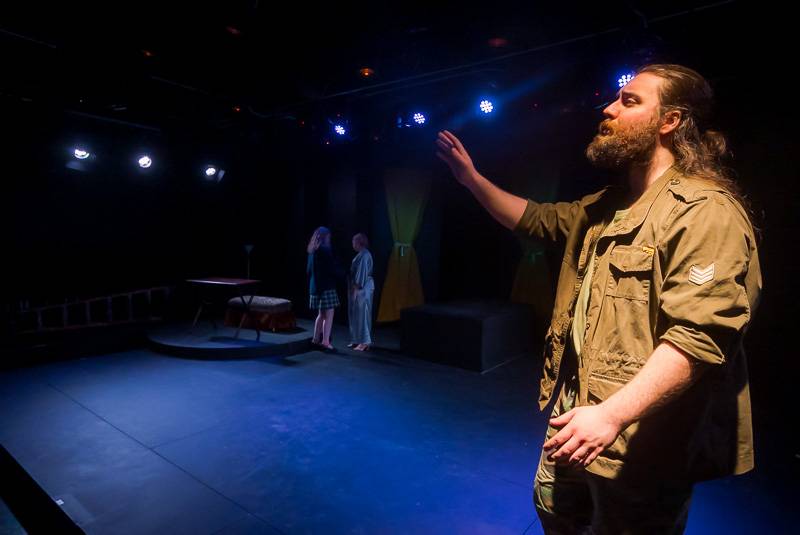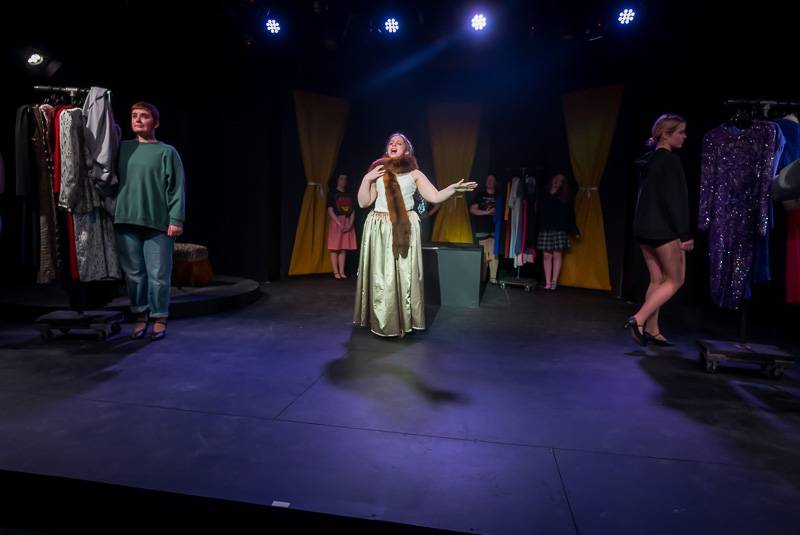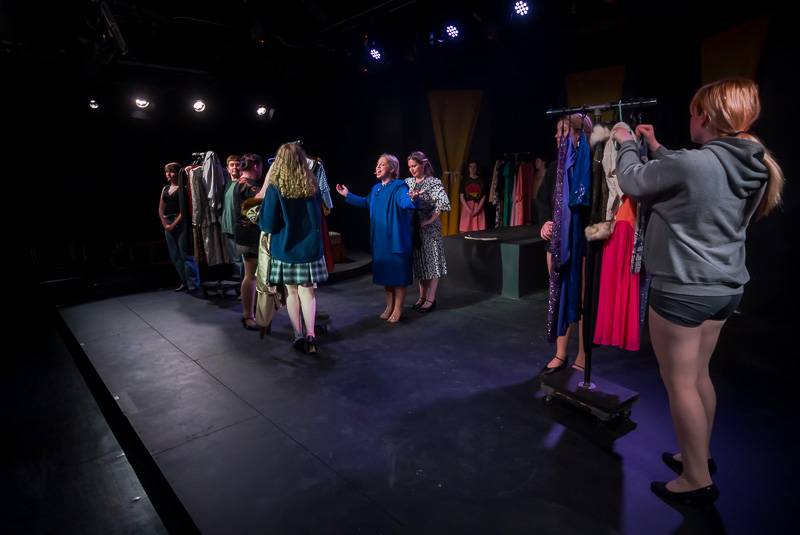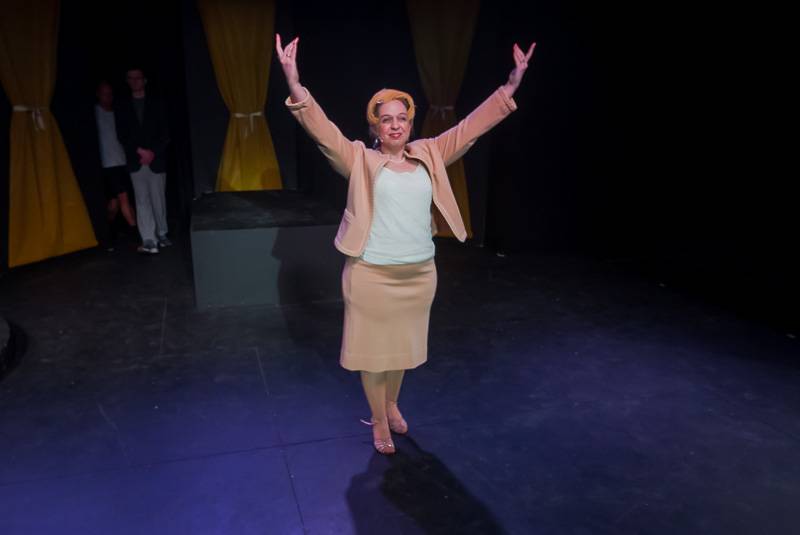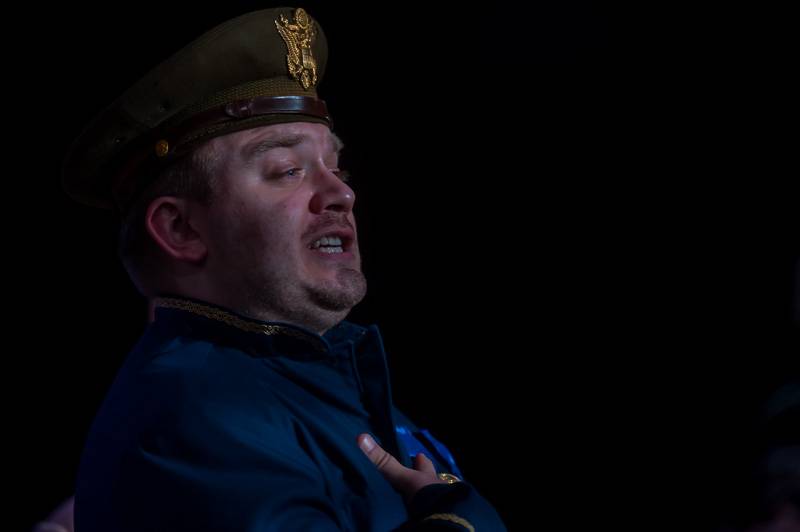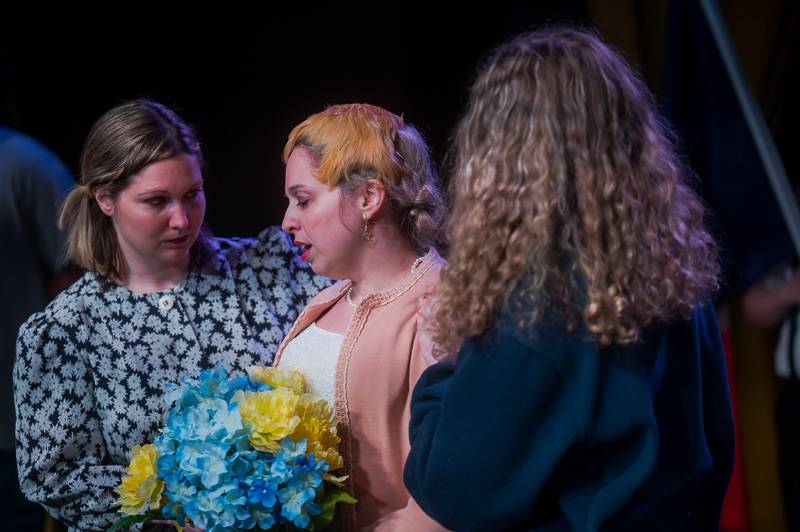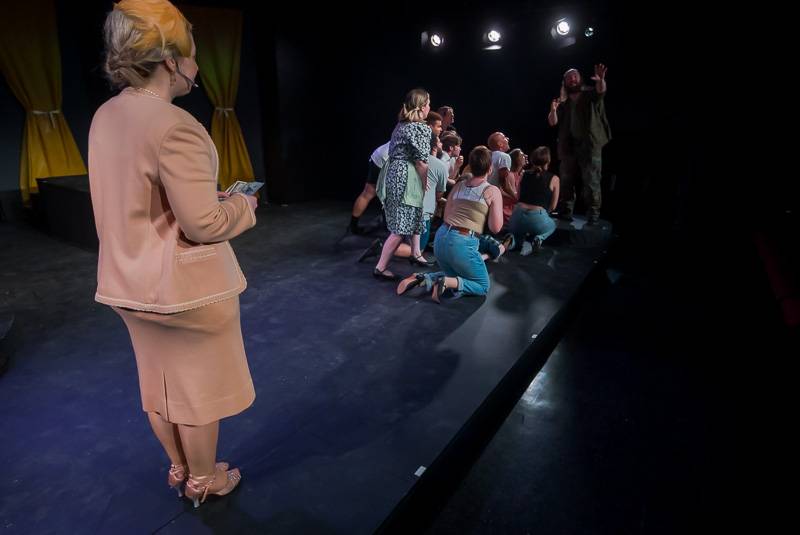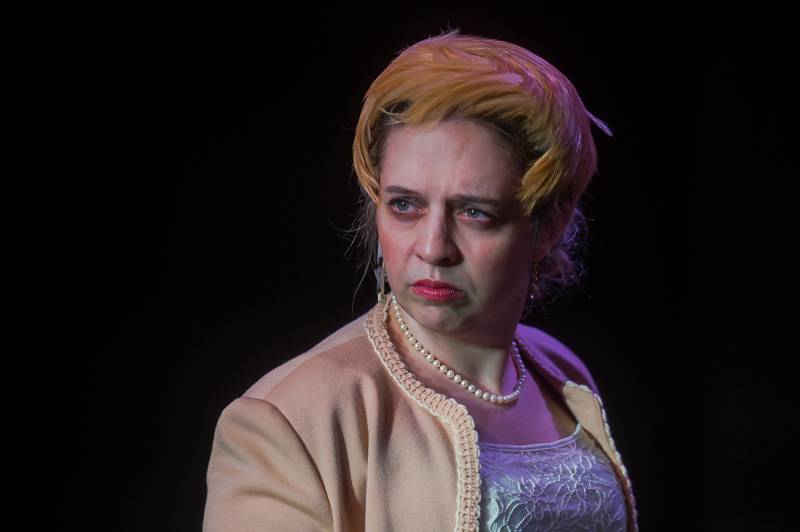
The Batavia Players production of “Evita,” hitting the 56 Main Theater stage this weekend, is high energy, said director Pat Burk.
There is nonstop singing and frequent dancing, and the main character, Kristen Gelia's Eva Peron, has 15 costume changes.
"Evita is very tough because she's rarely offstage," Burk said. If she's offstage, it's for 30 seconds. She literally sings over half the score, so it's a very difficult role. You need a strong voice, strong acting skills, and the ability to be very quick, manipulate, and move quickly."
Gelia, who was lead in the “Drowsy Chaperone” last spring, is a former Harvie Award winner and has been in a number of other Batavia Players’ productions, is doing a great job in the role, Burk said.
The cast -- which has only four named characters, and everybody else is an "ensemble" -- is active throughout the entire production, and Burk believes audiences will thoroughly enjoy the show they put on.
"I'm very, very pleased with our talent," Burk said. "This cast is doing a tremendous job. We have very long rehearsals, 10 hours on some days. And you're looking at people who volunteer their time to put on something that is not normally done in a regional or a community theater. We have great musicians in the pit, and you know that our tech is great. And so I hope people come and see it. It's a wonderful, wonderful show."
The Batavia Players production of Evita, hitting the 56 Main Theater stage this weekend, is high energy, said director Pat Burk.
There is nonstop singing and frequent dancing, and the main character, Kristen Gelia's Eva Peron, has 15 costume changes.
"Evita is very tough because she's rarely offstage," Burk said. If she's offstage, it's for 30 seconds. She literally sings over half the score, so it's a very difficult role. You need a strong voice, strong acting skills, and the ability to be very quick, manipulate, and move quickly."
Gelia, who was lead in the Drowsy Chaperone last spring, is a former Harvie Award winner, and has been in a number of other Batavia Player's productions, is doing a great job in the role, Burk said.
The cast -- which has only four named characters, and everybody else is an "ensemble" -- is active throughout the entire production, and Burk believes audiences will thoroughly enjoy the show they put on.
"I'm very, very pleased with our talent," Burk said. "This cast is doing a tremendous job. We have very long rehearsals, 10 hours on some days. And you're looking at people who volunteer their time to put on something that is not normally done in a regional or a community theater. We have great musicians in the pit, and you know that our tech is great. And so I hope people come and see it. It's a wonderful, wonderful show."
The story of Evita, meaning how Andrew Lloyd Webber and Tim Rice came to write the musical, begins with them writing the eventual hit song "Don't Cry for Me Argentina" when Webber and Rice became enthralled with the story of Eva Perón.
They wrote "Don't Cry for Me Argentina" and decided to spin it out into a rock opera. Evita was a concept album released in 1976 before it became a Tony Award-winning Broadway musical. The production eventually toured nationally, was adopted to film in 1996, and has been performed on stages from London to Spain, Mexico and South Africa.
The musical tells the story of Eva, who was born poor in the small city of Junin. At 15, she seeks a better life in Buenos Aires and persuades tango singer-songwriter Agustin Magaldi to take her to Argentina's capital city.
Once there, Eva sleeps her way up the social ladder. She becomes a model, radio star, and actress. During this same period, Col. Juan Perón begins his rise to power.
Following a charity concert in Luna Park to aid earthquake victims, Perón and Eva meet and begin an affair. Eva suggests she can help Perón rise to power.
Once the relationship is public, Eva is introduced to high society, only to be met with disdain from the upper classes and military.
"Surprisingly, at that time, the aristocrats in Argentina were basically people who fled from Nazi Germany as Nazis. In other words, after the war was over they checked out of Germany in order to be safe from being prosecuted," Burk said. "Also, a tremendous number of English people who were fascist and Nazi sympathizers (migrated). So it was a very wealthy group that was trying to run things, and she kind of upset the applecart."
That compelling story, along with the musical's iconic status, energy, and great work of the cast and crew, is why Burk hopes the community will be inspired to turn out for the production.
"It's been a favorite of mine for quite a few years," Burk said. "And it isn't always available for production; we're very lucky we were able to obtain the rights. It took us over two years to do that, to do the production here."
Evita opens at 56 Main St. Theater at 7:30 p.m. on Friday, followed by another 7:30 p.m. performance on Saturday and 2 p.m. shows on Saturday and Sunday. Tickets are $22 online, or $24 at the door, and students and seniors are $22.
Photos by Howard Owens
